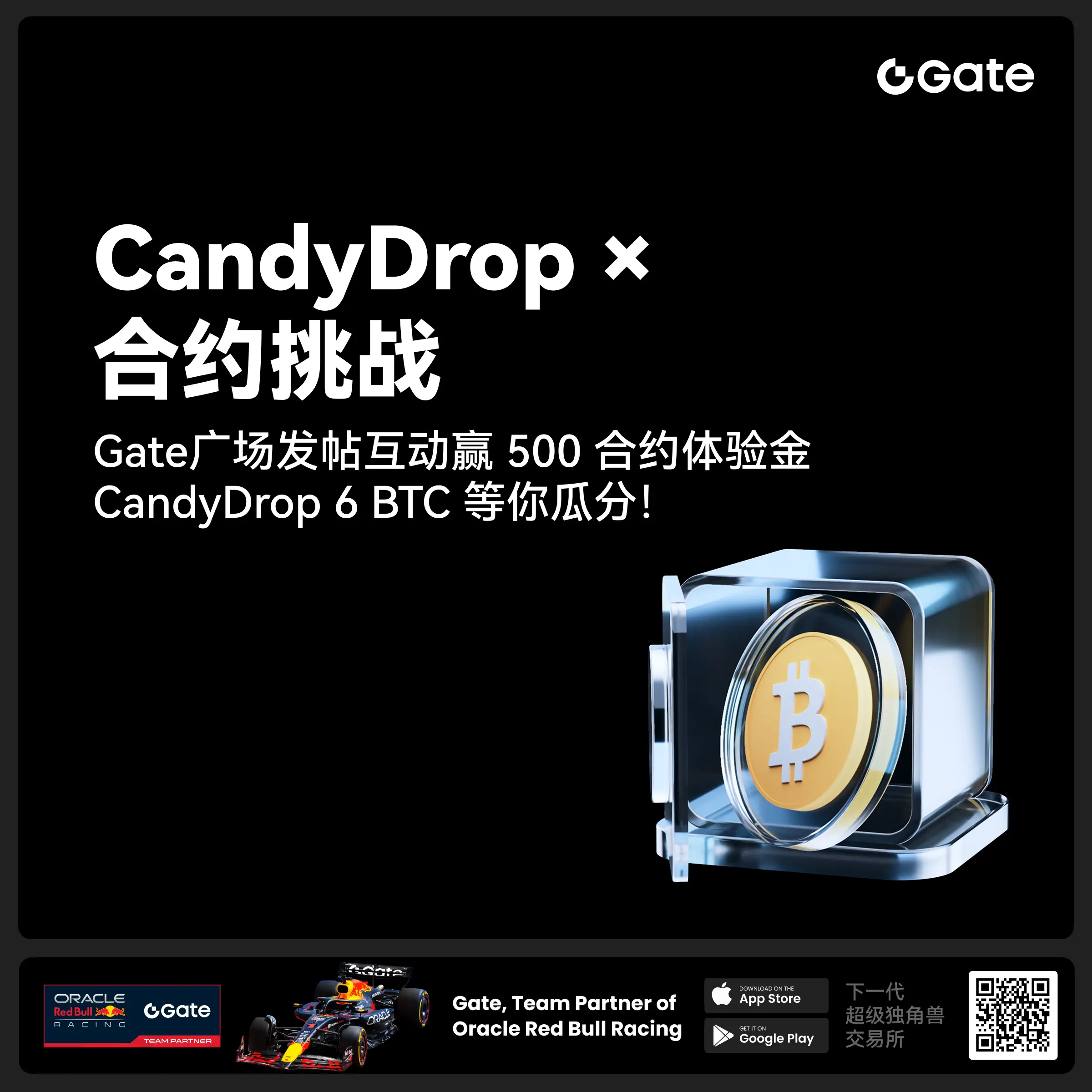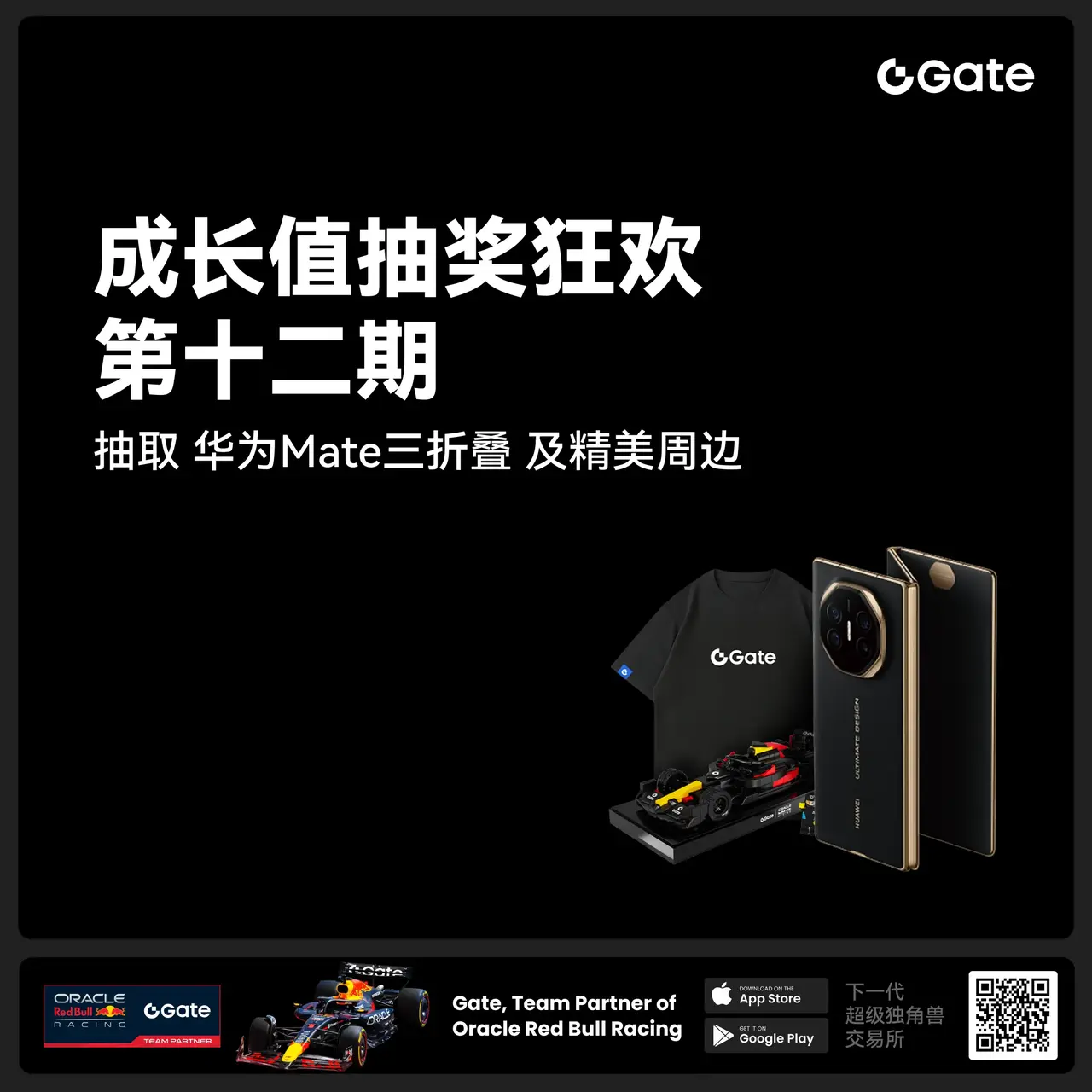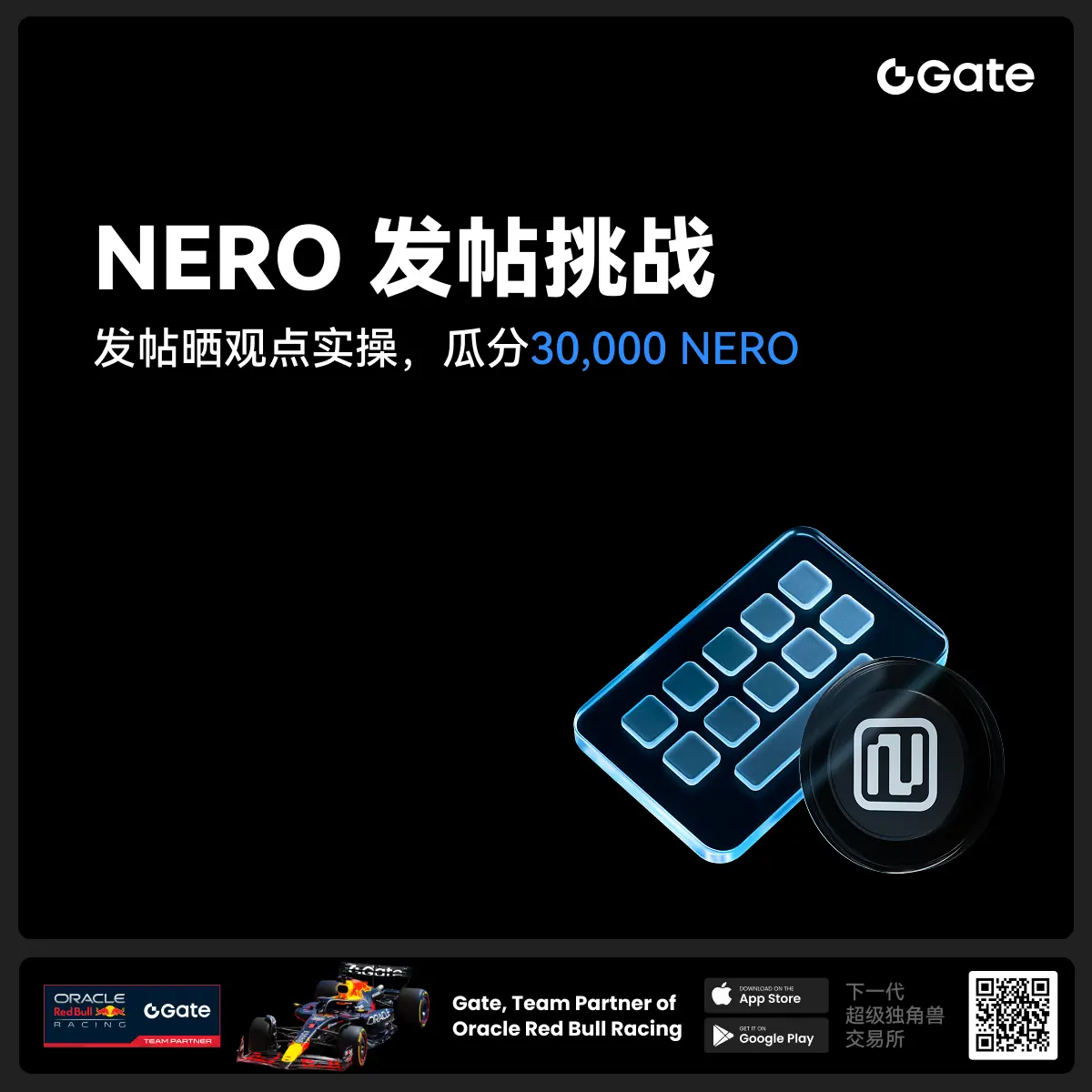- 話題1/3
78776 熱度
55048 熱度
70041 熱度
9285 熱度
22208 熱度
- 置頂
- 🎉 #CandyDrop合约挑战# 正式開啓!參與即可瓜分 6 BTC 豪華獎池!
📢 在 Gate 廣場帶話題發布你的合約體驗
🎁 優質貼文用戶瓜分$500 合約體驗金券,20位名額等你上榜!
📅 活動時間:2025 年 8 月 1 日 15:00 - 8 月 15 日 19:00 (UTC+8)
👉 活動連結:https://www.gate.com/candy-drop/detail/BTC-98
敢合約,敢盈利
- 🎉 攢成長值,抽華爲Mate三折疊!廣場第 1️⃣ 2️⃣ 期夏季成長值抽獎大狂歡開啓!
總獎池超 $10,000+,華爲Mate三折疊手機、F1紅牛賽車模型、Gate限量週邊、熱門代幣等你來抽!
立即抽獎 👉 https://www.gate.com/activities/pointprize?now_period=12
如何快速賺成長值?
1️⃣ 進入【廣場】,點擊頭像旁標識進入【社區中心】
2️⃣ 完成發帖、評論、點讚、發言等日常任務,成長值拿不停
100%有獎,抽到賺到,大獎等你抱走,趕緊試試手氣!
截止於 8月9日 24:00 (UTC+8)
詳情: https://www.gate.com/announcements/article/46384
#成长值抽奖12期开启#
- 📢 Gate廣場 #NERO发帖挑战# 秀觀點贏大獎活動火熱開啓!
Gate NERO生態周來襲!發帖秀出NERO項目洞察和活動實用攻略,瓜分30,000NERO!
💰️ 15位優質發帖用戶 * 2,000枚NERO每人
如何參與:
1️⃣ 調研NERO項目
對NERO的基本面、社區治理、發展目標、代幣經濟模型等方面進行研究,分享你對項目的深度研究。
2️⃣ 參與並分享真實體驗
參與NERO生態周相關活動,並曬出你的參與截圖、收益圖或實用教程。可以是收益展示、簡明易懂的新手攻略、小竅門,也可以是行情點位分析,內容詳實優先。
3️⃣ 鼓勵帶新互動
如果你的帖子吸引到他人參與活動,或者有好友評論“已參與/已交易”,將大幅提升你的獲獎概率!
NERO熱門活動(帖文需附以下活動連結):
NERO Chain (NERO) 生態周:Gate 已上線 NERO 現貨交易,爲回饋平台用戶,HODLer Airdrop、Launchpool、CandyDrop、餘幣寶已上線 NERO,邀您體驗。參與攻略見公告:https://www.gate.com/announcements/article/46284
高質量帖子Tips:
教程越詳細、圖片越直觀、互動量越高,獲獎幾率越大!
市場見解獨到、真實參與經歷、有帶新互動者,評選將優先考慮。
帖子需原創,字數不少於250字,且需獲得至少3條有效互動
- 🎉 親愛的廣場小夥伴們,福利不停,精彩不斷!目前廣場上這些熱門發帖贏獎活動火熱進行中,發帖越多,獎勵越多,快來GET你的專屬好禮吧!🚀
1️⃣ #GateLaunchpad上线IKA# |IKA認購體驗
在Gate廣場帶話題曬出你的IKA Launchpad認購體驗,4位幸運分享者講瓜分$200分享獎池!
詳情 👉️ https://www.gate.com/post/status/12566958
2️⃣ #ETH冲击4800# |行情分析預測
大膽發帖預測ETH走勢,展示你的市場洞察力!10位幸運用戶將平分0.1 ETH 獎勵!
詳情 👉️ https://www.gate.com/post/status/12322403
3️⃣ #创作者活动第二期# |ZKWASM話題
在廣場或推特發布與 ZKWASM 或其交易活動相關的原創內容,瓜分4,000枚ZKWASM!
詳情 👉️ https://www.gate.com/post/status/12525794
4️⃣ #Gate广场征文活动第二期# |ERA話題
談談你對ERA的觀點/體驗,參與並推廣活動,700 ERA大獎等你贏!
詳情 👉️ https://www.gate.com/post/status/12361653
5️⃣ #MBG任务挑战# |MBG話題
分享你對MBG的洞察,積極參與和推廣MBG活動,20位小
USDC凍結地址事件引發DeFi行業對去中心化的擔憂
USDC凍結地址事件引發DeFi行業擔憂
近期,USDC穩定幣發行方將一個地址加入黑名單的舉動引發了加密貨幣界的廣泛討論,尤其是對蓬勃發展的DeFi行業可能產生的影響。
今年3月,受新冠疫情影響,加密貨幣市場遭遇重創,去中心化穩定幣DAI也未能幸免。爲應對這一局面,MakerDAO社區決定引入與美元掛鉤的USDC作爲抵押品。然而,USDC的發行方CENTRE Consortium最近的一項舉動引起了業界的關注:他們應執法部門要求,凍結了一個地址上價值10萬美元的USDC。
CENTRE Consortium的發言人表示,他們無法透露更多細節,只能遵照具有管轄權的法院命令行事。被列入黑名單的地址將無法接收或轉移USDC代幣。
這一事件引發了對DAI去中心化程度的質疑。DeFi借貸協議Aave的CEO斯坦尼·庫勒霍夫指出,如果USDC被鎖定在Maker Vault中,可能會影響DAI與美元的掛鉤匯率。
業內人士認爲,盡管DAI能夠抵御金融風險,但如果其抵押品可被列入黑名單,可能會對DeFi協議的底層結構造成威脅。
Compound的法律顧問Jake Chervinsky在社交媒體上表示,USDC地址被加入黑名單已從理論變爲現實,這給DeFi行業帶來了實質性風險。
值得注意的是,USDC並非首個採取此類措施的穩定幣。據區塊鏈開發者Phillipe Castonguay分析,Tether自2017年11月以來已將39個以太坊地址列入黑名單,涉及金額達數百萬美元。
這些中心化公司選擇與執法部門合作並阻止相關交易的做法,與加密貨幣倡導的去中心化理念相悖。然而,CENTRE Consortium的政策文件顯示,他們保留阻止USDC代幣轉移的權利,以應對可能對USDC網路構成的威脅。
Komodo的CTO卡丹·斯塔德爾曼認爲,少量凍結交易可能不會影響USDC的市場地位,但如果這種做法成爲常態,可能會開創一個不好的先例。
DeFi風投基金Framework Ventures的米歇爾·安德爾森指出,DeFi行業仍存在中心化問題。他表示,如果穩定幣由中心化實體發行,就可能面臨交易被阻止、資產被凍結等風險。
卡丹·斯塔德爾曼總結道,這一事件凸顯了比特幣在全球範圍內的需求持續增長。盡管比特幣仍存在波動性問題,但作爲一種不可分割、不可阻擋的價值轉移工具,它仍然是首選。
然而,他也提醒用戶,要充分考慮中心化交易所帶來的潛在風險。